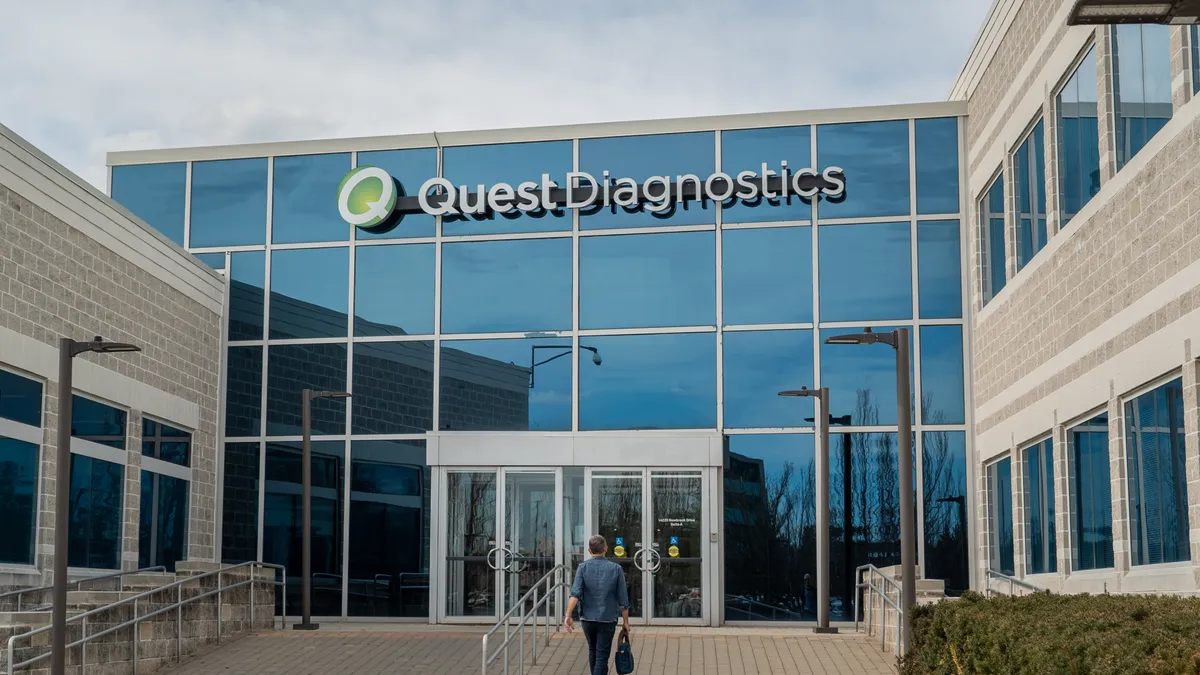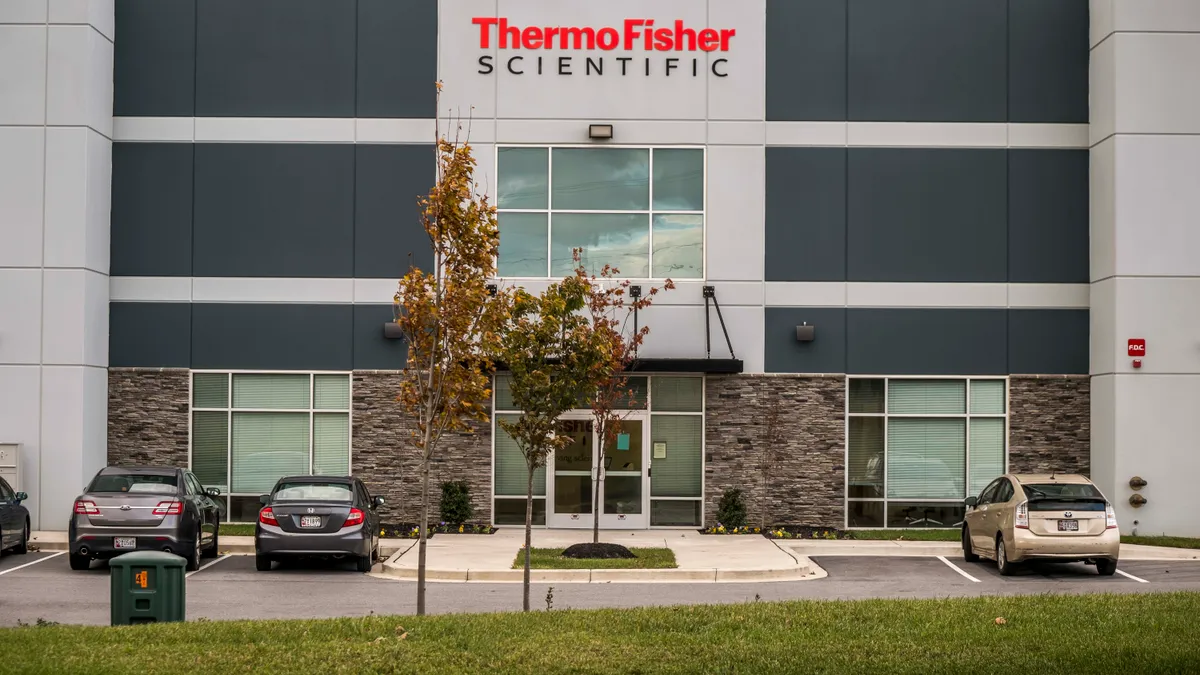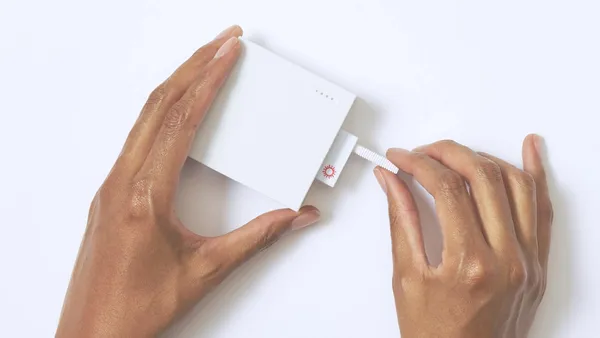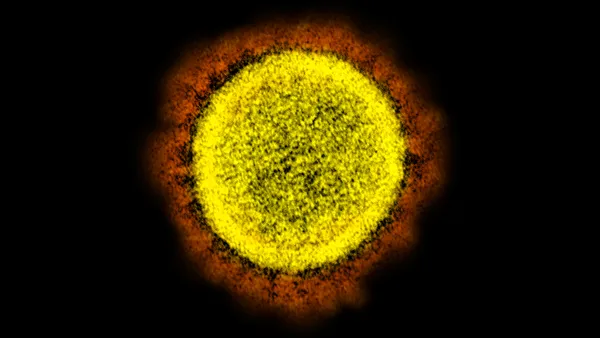Dive Brief:
- Quest Diagnostics has received emergency use authorization from FDA for three SARS-CoV-2 assays so users can self-collect nasal swab samples at home while being observed by a healthcare provider via telemedicine.
- The lab network got the agency's greenlight on Wednesday for the trio of tests to use specimens taken with the company's own self-collection kit for COVID-19 or other authorized home-collection kit.
- The FDA's newly authorized method of collection for the RT-PCR-based assays, all previously granted EUAs, states that these tests are for "individuals suspected of COVID-19 when home collection is determined to be appropriate by a healthcare provider."
Dive Insight:
Despite the agency's early concerns associated with user-facilitated collection regarding patient safety and test accuracy, FDA has steadily granted EUAs to lab networks, direct-to-consumer companies and individual laboratories for sample collection kits consumers can use at home.
The latest emergency authorizations for the three Quest assays are an attempt by the FDA to expand the availability of COVID-19 testing through safe and accurate tests that include nasal swab specimens collected by individuals in the home setting "observed under healthcare provider supervision via telemedicine."
The agency had previously raised questions over whether the average consumer could safely and correctly collect a specimen. However, the use of telehealth by providers as part of the process provides an added measure of confidence that it is as safe and accurate as sample collection at a medical facility or testing site.
In April, Quest rival LabCorp became the first company to have a coronavirus diagnostic test with a home collection option to receive an EUA from FDA. The agency reissued an authorization given in March for LabCorp's COVID-19 RT-PCR Test to permit testing of samples self-collected by patients at home using the company’s Pixel by LabCorp COVID-19 Test home collection kit.
Initially, LabCorp made the at-home collection test kits available to healthcare workers and first responders. But in May, the company expanded access through its online service to individuals with symptoms, as well as those without symptoms who may have been exposed to the virus, in line with CDC guidelines.
Both the LabCorp and Quest self-collection methods are meant to minimize coronavirus transmission and the use of personal protective equipment as they do not require an in-person visit to a healthcare provider.
The three Quest assays leverage two Hologic and one Roche test: HA SARS-CoV-2 Assay is conducted with Hologic's Aptima SARS-CoV-2 test, PF SARS-CoV-2 Assay is performed using Hologic's Panther Fusion SARS-CoV-2 RT-PCR-based test, and RC SARS-CoV-2 Assay is conducted with Roche's automated Cobas SARS-CoV-2 RT-PCR test.
Even though at-home collection may boost convenience, patients might be waiting a week or more to receive their test results. Quest late Monday reported that demand for its coronavirus diagnostics, particularly in the South, Southwest and West, are outpacing its capacity and as a result non-priority patients face average wait times for their test results of seven or more days.
Last week, LabCorp similarly warned its customers that due to "significant increases in COVID-19 testing demand" the average time to deliver results may now be four to six days from when a sample is received at their lab. The company hasn't issued an update to wait times since July 8.
These delayed turnaround times for test results could have negative impacts on public health. A study published on Thursday in The Lancet's public health journal found that test results need to be delivered within a day of a person developing symptoms for contact tracing to be effective in reducing transmission of the coronavirus.











